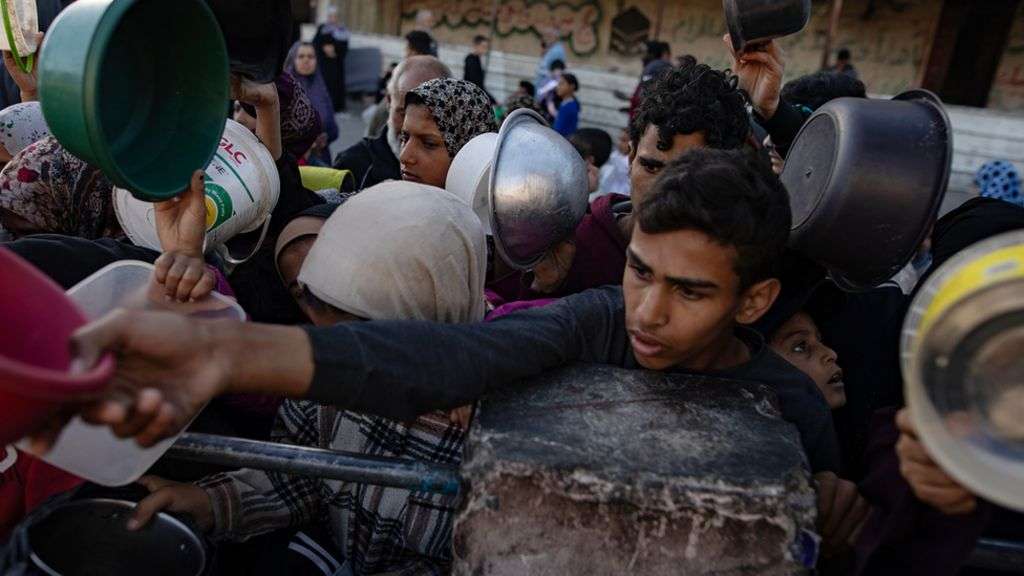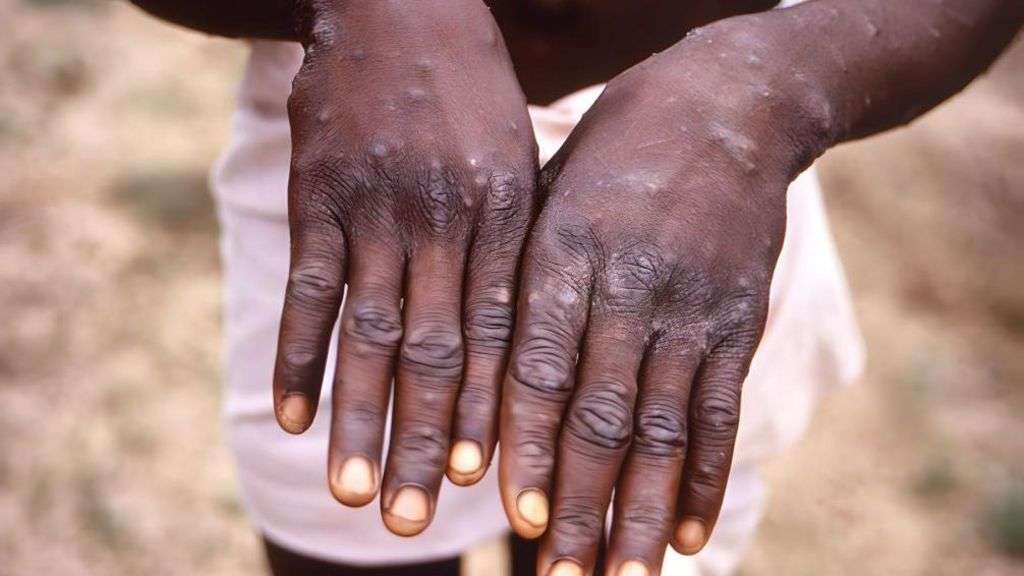Starvation is being used as a weapon of war in Gaza, the EU's foreign policy chief has claimed. Josep Borrell described the lack of aid entering the territory as a "manmade" disaster. A Spanish ship carrying desperately needed food supplies has left Cyprus for Gaza, but the UN says this cannot replace the delivery of aid by land. Israel's Prime Minister Benjamin Netanyahu has meanwhile vowed to press on with an offensive in southern Gaza. The quickest, most effective way to get aid into the territory is by road, but aid agencies say Israeli restrictions mean a fraction of what is needed is getting in. Attention has instead shifted towards alternative routes including sea and air drops. On Tuesday, a UN World Food Programme convoy used a land route to deliver aid to northern Gaza for the first time in three weeks. The trucks used an Israeli military road running along Gaza's border fence, Jamie McGoldrick, UN aid coordinator for the Occupied Palestinian Territory, told Reuters. Enough food for 25,000 people was delivered to Gaza City, with WFP spokesperson Shaza Moghraby saying they were hoping to "scale up" deliveries, but "need access to be regular and consistent". Israel says it is not to blame for Gaza's food shortages as it is allowing aid through two crossings in the south. But addressing the UN Security Council in New York on Tuesday, Mr Borrell said the humanitarian crisis in the territory was as a result of a lack of viable land routes. "We are now facing a population fighting for their own survival," he said. "Humanitarian assistance needs to get into Gaza, and the European Union is working as much as we can in order to make it possible. "[The humanitarian crisis is] manmade and when we look for alternative ways of providing support by sea, by air, we have to remind [ourselves] that we have to do it because the natural way of providing support through roads is being... artificially closed. "Starvation is being used as a war arm and when we condemned this happening in Ukraine, we have to use the same words for what is happening in Gaza." His comments come after the UN warned at least 576,000 people in Gaza - one quarter of the population - were one step away from famine. The territory's Hamas-run health ministry says at least 27 people, many of them children, have died as a result of malnutrition and dehydration at hospitals there in the last two weeks. Currently en route to help is the Spanish ship the Open Arms, which set sail from Larnaca just before 09:00 (07:00 GMT) on Tuesday towing a barge loaded with 200 tonnes of food supplies. While it is at sea, Palestinians working for World Central Kitchen (WCK) will continue building a jetty at an undisclosed location on Gaza's coast, which will be used to offload the aid. A US military ship, General Frank S Besson, is also sailing towards the Middle East carrying equipment to build a temporary pier, which WCK says is unrelated to its own project. Israel has welcomed the creation of the maritime corridor and said it was facilitating the transfer of aid to Gaza while its forces continued to fight Hamas. Mr Netanyahu reiterated on Tuesday that Israel would press ahead with its military campaign into Rafah, Gaza's most southerly city located near the border with Egypt. "We will finish the job in Rafah while enabling the civilian population to get out of harm's way," he said in a video address to a conference of the pro-Israel Aipac organisation in Washington on Tuesday. Meanwhile, the UK's Foreign Secretary, Lord Cameron, has urged Israel to open the major port of Ashdod - one of the country's three main cargo ports located just south of Tel Aviv - to seaborne aid deliveries destined for Gaza. The war in Gaza began when Hamas gunmen attacked southern Israel on 7 October, killing about 1,200 people and seizing 253 hostages. More than 31,180 people have been killed in Gaza since then, the Hamas-run health ministry there says. Weeks of talks involving US, Qatari and Egyptian mediators have failed to bring about a ceasefire or hostage exchange deal.








